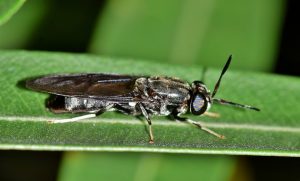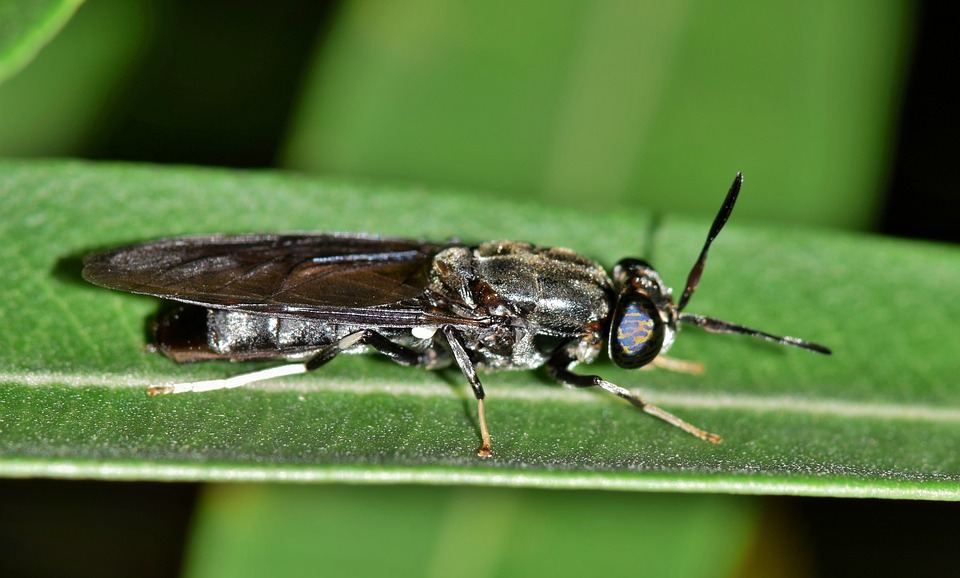Insects are vital for farming as pollinators of crops and as predators of pests but livestock farmers are now looking more and more at insects as a source of feed. There is however, a growing interest and research on farming insects to provide a source of protein for both animals and humans. The global edible insects market is expected to reach USD 7,956.7 million by 2030, with an annual growth rate of 24.4% p.a.
It is estimated that insects form part of the traditional diets of at least 2 billion people but in many Western countries in particular consumers often view eating insects with disgust. However one way in which insects could contribute to food security could be through their use as animal feed – particularly if the insect protein is produced using waste materials. It is estimated that the global market for insect animal feed could reach USD 2385.6 million by the end of 2029. Farmed insects such as the Black Soldier Fly (Hermetia illucens) may offer a more efficient and sustainable source of protein in poultry and aquaculture diets than soy-bean meal and fish meal and help to meet the growing demand for animal proteins across the globe.

Interest in insects as animal feed is particularly strong within Europe. According to the EU Commission the EU produces only 29% of what it consumes in products with a protein content of 30 to 50%.
In November 2018 Adriana Cassilis Vice President of the International Platform for Insects as Food and Feed (IPIFF) stated that insects are ‘new’ sources of protein and are needed to close the feed gap. This has a considerable impact on the economics of poultry and pig production as well as aquaculture. There is growing pressure from both retailers and policy makers to reduce Europe’s reliance on imported soya meal due to the perceived environmental damage and deforestation caused by increased soy production.
Before insects can start to replace some of the 30 million MT per year of soya meal currently imported into the EU regulations need to change to allow the feeding of insect products to pigs and poultry. The EU has allowed insects to be fed to fish since 2017 and according to the IPIFF it is expected that insects will soon be approved for feeding to poultry and pigs. The IPIFF claim that roughly 1,000 tonnes of insect protein have been commercialized by European insect producers in total, since the authorization of insect proteins for use in aqua feed. Currently the aquaculture feed market consumes approximately 50% of European animal feed made from insects and this is expected to rise to 75% by 2030. Some believe that farmed salmon producers may be able to charge a premium for fish produced using insect feeds based on the improved environmental credentials.
There are other challenges, many of the substrates used for the production of insect larvae can also be fed directly to livestock and it is simply not economic sense to use them to produce insect protein destined for food animals. Currently other waste products such as manure, catering and domestic waste are not allowed in farmed animal feeds – and insects are classed as a farmed animal.
Despite these challenges market forces and environmental pressures are building for the necessary changes to take the market forward in the future.

